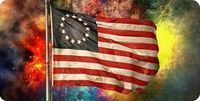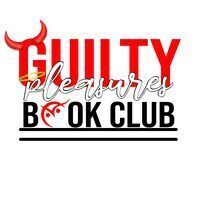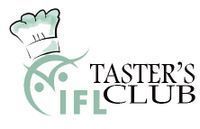IFL Book Clubs
At IFL, we have several adult book clubs to choose from according to your interests in reading materials!
-
IFL American History Book Club. Come learn about our country's unique history in this book club. The book club meets every fourth Tuesday of the month at 11 AM in the Community Room. Refreshments are provided. This club moves through American History chronologically from our earliest known inhabitants to the present day. Our subjects range from some of the most well-known personages and events in American History to obscure instances and persons that are remembered only slightly, but were important to our country for one reason or many. Each month's reading can be found for checkout on the book club shelf on the first floor of the library.
Click on the American Flag to get a 2026 schedule and brief synopsis of each title.
American History Book Club

IFL American History Book Club 2026 Schedule
January 27th--The Ride: Paul Revere and the Night That Saved America (304 pp).
Timed for the 250th anniversary of one of America’s most famous founding events: Paul Revere’s heroic ride, newly told with fresh research into little-known aspects of the story Americans have heard since childhood but hardly understood. On April 18, 1775, a Boston-based silversmith, engraver, and anti-British political operative named Paul Revere set out on a borrowed horse to fulfill a dangerous but crucial mission: to alert American colonists of advancing British troops, which would seek to crush their nascent revolt. Revere was not the only rider that night, and indeed, he had completed at least 18 previous rides across New England and other colonies, disseminating intelligence about British movements. But this ride was like no other, and its consequences in the months and years to come―as the American Revolution morphed from isolated skirmishes to a full-fledged war―became one of our founding legends.
February 24th--The Day the American Revolution Began: 19 April 1775 by William H. Hallahan (328 pp).
At four in the morning on April 19, 1775, a line of British soldiers stared across the village green of Lexington, Massachusetts, at a crowd of seventy-seven American militiamen. A shot rang out, and the Redcoats replied with a devastating volley. But the day that started so well for the king's troops would end in catastrophe: seventy-three British soldiers dead, two hundred wounded, and the survivors chased back into Boston by the angry colonists. Thus began the Revolution. Drawing on diaries, letters, official documents, and memoirs, William H. Hallahan vividly captures the drama of those tense twenty-four hours and shows how they decided the fate of two nations.
March 24th—Those Turbulent Sons of Freedom: Ethan Allen's Green Mountain Boys and the American Revolution by Christopher S. Wren (320 pp).
In the “highly recommended” (Library Journal) Those Turbulent Sons of Freedom, Wren overturns the myth of Ethan Allen as a legendary hero of the American Revolution and a patriotic son of Vermont and offers a different portrait of Allen and his Green Mountain Boys. They were ruffians who joined the rush for cheap land on the northern frontier of the colonies in the years before the American Revolution. Allen did not serve in the Continental Army but he raced Benedict Arnold for the famous seizure of Britain’s Fort Ticonderoga. Allen and Arnold loathed each other. General George Washington, leery of Allen, refused to give him troops. In a botched attempt to capture Montreal against specific orders of the commanding American general, Allen was captured in 1775 and shipped to England to be hanged. Freed in 1778, he spent the rest of his time negotiating with the British but failing to bring Vermont back under British rule.
April 28th—Bunker Hill: A City, A Siege, A Revolution (The American Revolution Series) by Nathaniel Philbrick (401 pp).
In the opening volume of his acclaimed American Revolution series, Nathaniel Philbrick turns his keen eye to pre-Revolutionary Boston and the spark that ignited the American Revolution. In the aftermath of the Boston Tea Party and the violence at Lexington and Concord, the conflict escalated and skirmishes gave way to outright war in the Battle of Bunker Hill. It was the bloodiest conflict of the revolutionary war, and the point of no return for the rebellious colonists. Philbrick gives us a fresh view of the story and its dynamic personalities, including John Adams, Samuel Adams, John Hancock, Paul Revere, and George Washington. With passion and insight, he reconstructs the revolutionary landscape—geographic and ideological—in a mesmerizing narrative of the robust, messy, blisteringly real origins of America.
May 26th—Revolutionary Summer: The Birth of American Independence by Joseph J. Ellis (304 pp).
The summer months of 1776 witnessed the most consequential events in the story of our country’s founding. While the thirteen colonies came together and agreed to secede from the British Empire, the British were dispatching the largest armada ever to cross the Atlantic to crush the rebellion in the cradle. The Continental Congress and the Continental Army were forced to make decisions on the run, improvising as history congealed around them. In a brilliant and seamless narrative, Ellis meticulously examines the most influential figures in this propitious moment, including George Washington, John Adams, Thomas Jefferson, Benjamin Franklin, and Britain’s Admiral Lord Richard and General William Howe. He weaves together the political and military experiences as two sides of a single story, and shows how events on one front influenced outcomes on the other.
June 23rd—Declaration: The Nine Tumultuous Weeks When America Became Independent, May 1-July 4, 1776 by William Hogeland (296 pp).
This is the rambunctious story of how America came to declare independence in Philadelphia in 1776. As late as that May, the Continental Congress had no plans to break away from England. Troops under General George Washington had been fighting the British for nearly a year—yet in Philadelphia a mighty bloc known as "reconciliationists," led by the influential Pennsylvanian John Dickinson, strove to keep America part of the British Empire. But a cadre of activists—led by the mysterious Samuel Adams of Massachusetts and assisted by his nervous cousin John—plotted to bring about American independence. Their audacious secret plan proposed overturning the reconciliationist government of Pennsylvania and replacing it with pro-independence leaders. Remarkably, the adventure succeeded. The Adams coalition set in motion a startling chain of events in the Philadelphia streets, in the Continental Congress, and throughout the country that culminated in the Declaration of Independence on July 4.
July 28th--American Scripture: Making the Declaration of Independence by Pauline Maier (336 pp).
Pauline Maier shows us the Declaration as both the defining statement of our national identity and the moral standard by which we live as a nation. It is truly "American Scripture," and Maier tells us how it came to be -- from the Declaration's birth in the hard and tortuous struggle by which Americans arrived at Independence to the ways in which, in the nineteenth century, the document itself became sanctified. Maier describes the transformation of the Second Continental Congress into a national government, unlike anything that preceded or followed it, and with more authority than the colonists would ever have conceded to the British Parliament; the great difficulty in making the decision for Independence; the influence of Paine's Common Sense, which shifted the terms of debate; and the political maneuvers that allowed Congress to make the momentous decision. In Maier's hands, the Declaration of Independence is brought close to us.
August 25th —Signing Their Lives Away: The Fame and Misfortune of the Men Who Signed the Declaration of Independence by Denise Kiernan and Joseph D'Agnese (304 pp).
An entertaining and essential collection of stories about the surprising and strange fates of the fifty-six Founding Fathers who signed the Declaration of Independence. In the summer of 1776, a group of 56 men risked their lives and livelihood to defy King George III and sign the Declaration of Independence—yet how many of them do we remember? Signing Their Lives Away introduces readers to the eclectic group of statesmen, soldiers, slaveholders, and scoundrels who signed this historic document—and the many strange fates that awaited them. To wit: The Signer Who Was Poisoned By His Nephew, The Signer Who Was Killed In a Duel, The Signer Who Went to Prison, The Signer Who Was Lost at Sea, and The Signer Who Achieved Fame as a Brewer! Complete with portraits of every signatory, Signing Their Lives Away provides an entertaining and enlightening narrative for students, history buffs, politicos, and Hamilton fans alike.
September--Nathan Hale: The Life and Death of America's First Spy by M. William Phelps (320 pp).
Few Americans know much more about Nathan Hale than his famous last words: “I only regret that I have one life left to give for my country.” But who was the real Nathan Hale? M. William Phelps charts the life of this famed patriot and Connecticut’s state hero, following Hale’s rural childhood, his education at Yale, and his work as a schoolteacher. Even in his brief career, he distinguished himself by offering formal lessons to young women. Like many young Americans, he soon became drawn into the colonies’ war for independence, becoming a captain in Washington’s army. When the general was in need of a spy, Hale willingly rose to the challenge, bravely sacrificing his life for the sake of American liberty. Using Hale’s own journals and letters as well as testimonies from his friends and contemporaries, Phelps depicts the Revolution as it was seen from the ground. From the confrontation in Boston to the battle for New York City, readers experience what life was like for an ordinary soldier in the struggling Continental army.
October--Glory, Passion, and Principle: The Story of Eight Remarkable Women at the Core of the American Revolution by Melissa Lukeman Bohrer (288 pp).
John Adams, Thomas Jefferson, Benjamin Franklin -- these are the names we typically associate with the American Revolution. But was American History solely written by men? Were there no influential women? No women who had an impact on the founding of America in its crucial, formative years, in its fight for independence? Indeed, there were -- although their contributions have been overlooked or ignored for over two hundred years. Until now. Glory, Passion, and Principle is an extraordinary journey through revolutionary America as seen from a woman's perspective. Here are the lesser-known stories of eight influential females who fought for freedom -- for their country and themselves -- at all costs. Whether advising prominent male leaders in political theory (Abigail Adams), using their pens as swords (Phillis Wheatley, Mercy Otis Warren), acting as military spies (Sybil Ludington, Lydia Darragh), or going to battle (Molly Pitcher, Deborah Sampson, Nancy Ward), these women broke free of the limitations imposed upon them, much as our forefathers did by resisting British rule upon American soil.
November--The Winter Soldiers: The Battle for Trenton and Princeton by Richard M. Ketchum (384 pp).
The Winter Soldiers is the story of a small band of men held together by George Washington in the face of disaster and hopelessness, desperately needing at least one victory to salvage both cause and country. In the fall of 1776 the British delivered a crushing blow to the Revolutionary War efforts. New York fell and the anguished retreat through New Jersey followed. Winter came with a vengeance, bringing what Thomas Paine called “the times that try men’s souls.” Richard M. Ketchum tells the tale of unimaginable hardship and suffering that culminated in the battles of Trenton and Princeton. Without these triumphs, the American Revolution that had begun so bravely could not have gone on.
December (No Book Discussion) Happy Holidays!
-
 Classics Book Club
Classics Book ClubThe Classics Book Club reads and discusses many classic works as well as modern classics. This group meets on the fourth Thursday of each month at 10:30 AM. Join this group for lively and in-depth discussions about the characters, setting, author, and history of the era.
-
Our Taster's Club meets the first Wednesday of each month in the Community Room of the library. In this fun book club, a cookbook from the library's collection is chosen by the members each month at the meeting and each member also chooses a recipe to prepare and bring to share among the others at the next month's meeting. Tips and tweaks to each recipe are discussed and then, a new cookbook is chosen. The Circulation Librarians will make a copy of your chosen recipe so that you can take it home and prepare it for the next meeting. Sound like fun? It is!! Come cook with us!!
Click the logo to see this year's cookbook schedule!
-
 IFL True Story Book Club
IFL True Story Book ClubThe IFL True Story Book Club meets on the first Tuesday of each month at 11 AM in the library's Community Room. This book club's subjects cross time periods and countries for stories of people and events. All those stories need to be is--TRUE! Refreshments are served at the meeting. Books are available for checkout with your library card on the book club shelf on the first floor of the library.
-
 Guilty Pleasures Book Club
Guilty Pleasures Book ClubAre you:
• An adult who enjoys reading Young Adult novels?
• A parent who would like some “me time” to socialize with other adults while discussing a digestible book?
• A parent, guardian, or mentor who wants to keep in touch with what their kids are reading (or even find some recommendations)Join us the 2nd Wednesday of each month for the Guilty Pleasures Book Club, where we will meet in a relaxed environment to chat and discuss a different YA book. This is a low-pressure, judgement-free book club where we encourage reading what YOU want.
Books are available at the library and we will try to pick titles available in e-book/audiobook through CloudLibrary.








